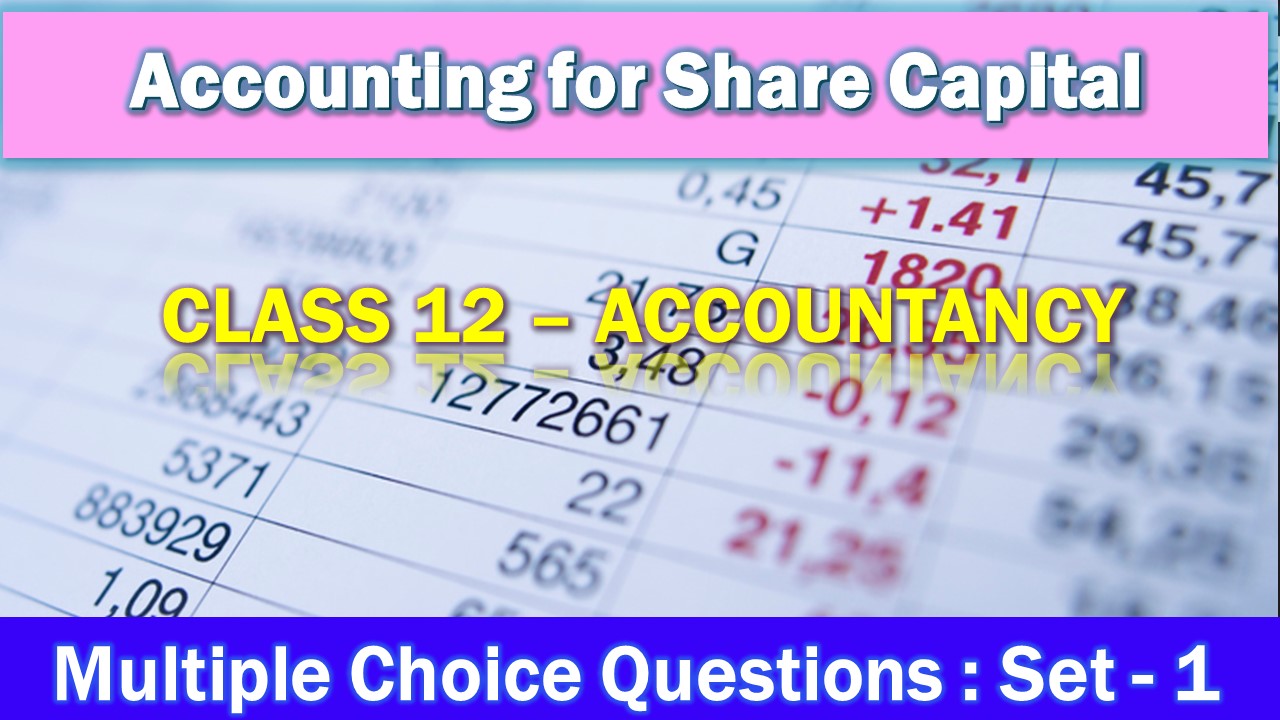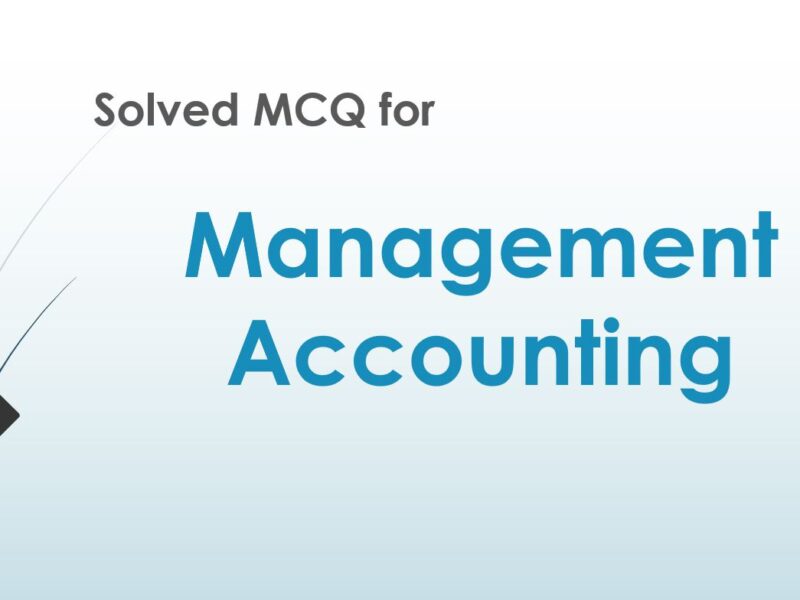CBSE Class 12 Accounting for Share Capital Multiple Choice Questions with Answers. MCQ Questions Class 12 Accounting for Share Capital with Answers Is Prepared Based on Latest Exam Pattern. Students can solve NCERT MCQ questions Class 12 Accounting for Share Capital with Answers to know their preparation level.
Students who are searching for NCERT MCQ Questions Class 12 Accounting for Share Capital with Answers are compiled here to get good practice on all fundamentals. Know your preparation level on MCQ Questions for Class 12 Accounting for Share Capital with Answers. You can also verify your answers from the provided MCQ Class 12 Accounting for Share Capital with Answers. So, ace up your preparation with MCQ of Class 12 Accountancy Examinations.
MCQ Questions Class 12 Accounting for Share Capital with Answers - Set - 1
Question 1:
A joint stock company is :
(a) An artificial legal person
(b) Natural person
(c) A general person
(d) None of these
Correct Answer – (A)
Question 2:
Share Application Account is :
(a) Personal Account
(b) Real Account
(c) Nominal/ Account
(d) None of these
Correct Answer – (A)
Question 3:
When a company issues fully paid shares to promoters for their services, the journal entry will be:
(a) Bank A/c Dr. To Share Capital A/c
(b) Good will A/c Dr. To Share Capital A/c
(c) Promoters Personal A/c Dr. To Share Capital A/c
(d) Promotion Expenses A/c Dr. To Share Capital A/c
Correct Answer – (D)
Question 4:
Which statement is issued before the issue of shares ?
(a) Prospectus
(b) Articles of Association
(c) Memorandum of Association
(d) All of these
Correct Answer – (D)
Question 5:
When full amount is due on any call but it is not received, then the short fall is debited to :
(a) Calls-in-advance
(b) Calls-in-arrear
(c) Share Capital
(d) Suspense Account
Correct Answer – (A)
MCQ Questions Class 12 Accounting for Share Capital With Answers
Question 6:
Secrities Premium can not be applied :
(a) For paying dividend to members
(b) For issuing bonus shares to members
(c) For writing off preliminary expenses of company
(d) For writing off discount on issue of debentures
Correct Answer – (A)
Question 7:
When a company issues shares at a premium, amount of premium may be received by the company :
(a) Along with application money
(b) Along with application money
(c) Along with calls
(d) Along with any of the above
Correct Answer – (D)
Question 8:
Company can utilise securities premium for :
(a) Writing off loss incurred on revaluation of asset
(b) Issuing fully paid bonus shares
(c) Paying divided
(d) Writing off trading loss
Correct Answer – (B)
Question 9:
The difference between subscribed capital and called up capital is called :
(a) Calls-in-arear
(b) Calls-in-advance
(c) Uncalled capital
(d) None of these
Correct Answer – (C)
Question 10:
Reserve share capital means :
(a) Part of authorised capital to be called at the beginning
(b) Portion of uncalled capital to be called only at liquidation
(c) Over subscribed capital
(d) Under subscribed capital




